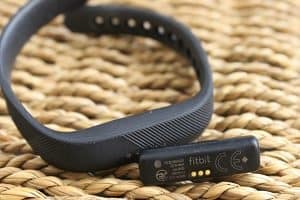
Fitbit Exploded On A Girl’s Wrist. A Wisconsin says she was injured when the band of her Fitbit Flex 2 fitness tracker exploded on her wrist, resulting in second-degree burns. The “bracelet melted and I got pieces of plastic burned into my arm. . . I’m going to have a scar from this probably. […]

Fitbit Exploded On A Girl’s Wrist. A Wisconsin says she was injured when the band of her Fitbit Flex 2 fitness tracker exploded on her wrist, resulting in second-degree burns.
The “bracelet melted and I got pieces of plastic burned into my arm. . . I’m going to have a scar from this probably. Can you imagine what it would do to a child?”
Fitbit says it is safe for consumers to wear or buy the Flex 2 fitness tracker even while the incident is under investigation. The injured woman told WKRC television in Cincinnati that she had been reading when the Fitbit exploded, injuring her arm. She said she ripped the device off her arm while it was still burning and tossed it on the floor. Her doctor had to pick pieces of plastic and rubber out of her arm when he treated her after the incident.
Aurora Health Care in Wisconsin confirmed to USA Today that the woman was treated at one of its urgent care facilities.
Parker Waichman LLP notes increasing reports of burns, injuries, and vehicle and property damage from fires from exploding batteries in devices.
In a statement, Fitbit said, “We are extremely concerned about report regarding her Flex 2 and take it very seriously, as the health and safety of our customers is our top priority.” The company said its “products are designed and produced in accordance with strict standards and undergo extensive internal and external testing to ensure the safety of our users.”
Fitbit said it is not “aware of any other complaints of this nature and see no reason for people to stop wearing their Flex 2.”
 The $99.95 Flex 2 swim-proof band came out in Fall 2016. The device is powered by a lithium-polymer battery. Similar batteries in the Samsung Galaxy Note 7 smart phone caught fire, causing injuries and property damage. After airlines banned the Galaxy Note from checked luggage for fear of fire, Samsung recalled the Note 7 from the market.
The $99.95 Flex 2 swim-proof band came out in Fall 2016. The device is powered by a lithium-polymer battery. Similar batteries in the Samsung Galaxy Note 7 smart phone caught fire, causing injuries and property damage. After airlines banned the Galaxy Note from checked luggage for fear of fire, Samsung recalled the Note 7 from the market.
Unsafe batteries have been a concern in other products, including e-cigarettes, hoverboards, and implantable heart devices.
Hoverboards-self-balancing scooters-were extremely popular and manufacturers rushed to bring their versions to market. But because there were no set standards for batteries that could be used in hoverboards, some hoverboards caught fire while in use and others caught fire when charging. The fires have destroyed hoverboards and caused property damage. Because of the fire and explosion danger, some airlines prohibit passengers from bringing the devices onboard in carry-on luggage or from transporting them in checked baggage.
E-cigarette batteries have also proved dangerous. Users have sued manufacturers and vape shops over exploding e-cigarettes. Some people have suffered burns and injuries to hands, face, and mouth when an e-cigarette exploded during use. Other people have suffered leg or torso burns when the device caught fire in a pocket. Some e-cigarettes have exploded while charging and have caused property damage, including damage to vehicles when the device was being charged in a car.
The U.S. Food and Drug Administration (FDA) has recently extended its regulatory authority over tobacco products to include e-cigarettes and nicotine liquid. The new regulations include stricter oversight of the devices and their batteries.
Joseph Wittine, an analyst with Longbow Research, said he does not see this incident as Fitbit’s “Samsung Note moment.” And Ramon Llamas, IDC research manager for wearables, urged patience with the process of investigating the device. But Llamas also said he is eager to learn what the investigation uncovers.
With the proliferation of wearable devices like the Fitbit; and smart phones, tablets, and game systems that are carried in pockets, purses and backpacks, and often charged in a vehicle, there is reason to be concerned about the safety of batteries. With devices like the hoverboard, which are not subject to manufacturing standards, manufacturers can rush their versions to market without proper caution about the battery. Even medical devices, which must be cleared by the FDA, are a cause for concern. St. Jude Medical has recalled about 400,000 implantable defibrillators because of a problem with the lithium-ion battery that can result in sudden depletion of the battery before the patient has time to respond to the battery alert. This problem has been linked to two deaths and incidents where the device did not administer necessary shocks to regulate the heart rhythm.
The personal injury attorneys at Parker Waichman LLP offer free, no-obligation case evaluations. For more information, fill out our online contact form or call 1-800-YOURLAWYER (1-800-968-7529).


